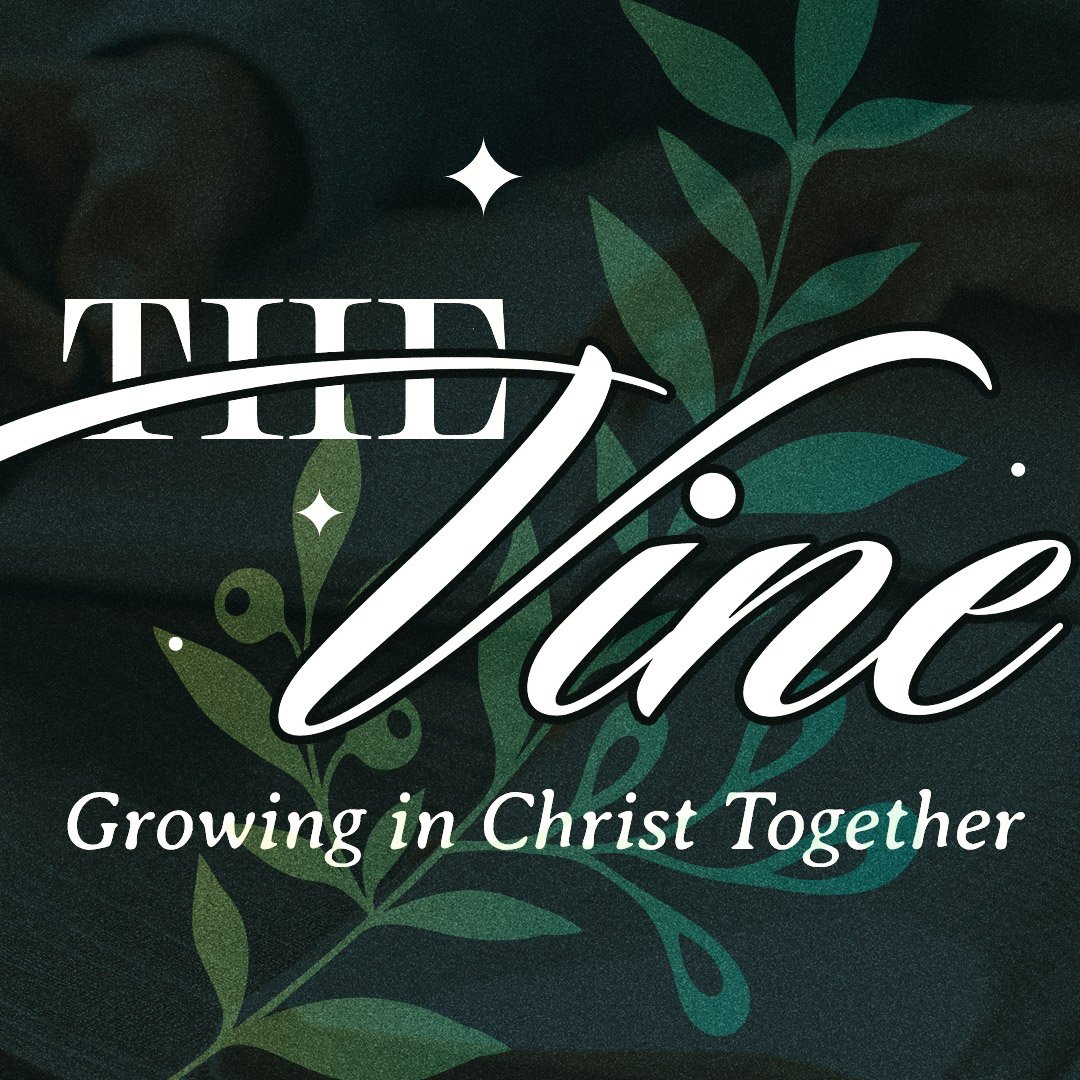The Vine: July 1
“Abide in me as I abide in you. Just as the branch cannot bear fruit by itself unless it abides in the vine, neither can you unless you abide in me. I am the Vine, you are the branches. Those who abide in me and I in them bear much fruit, because apart from me you can do nothing”
This is a weekly reflection on the previous week’s sermon text. Each week there will be a devotional related to the scripture for the week, along with questions for reflection/discussion, as well as prayer. Feel free to make this a part of your individual spiritual growth throughout the week or utilize in small group settings (growth groups, Sunday school, etc.)
“I will exalt you, my God the King; I will praise your name for ever and ever. Every day I will praise you and extol your name for ever and ever. Great is the Lord and most worthy of praise; his greatness no one can fathom. One generation commends your works to another; they tell of your mighty acts. They speak of the glorious splendor of your majesty—and I will meditate on your wonderful works. They tell of the power of your awesome works—and I will proclaim your great deeds. They celebrate your abundant goodness and joyfully sing of your righteousness.
The Lord is gracious and compassionate, slow to anger and rich in love. The Lord is good to all; he has compassion on all he has made. All your works praise you, Lord; your faithful people extol you. They tell of the glory of your kingdom and speak of your might so that all people may know of your mighty acts and the glorious splendor of your kingdom.”
Psalm 145 is one of the most beautiful and interesting chapters in the Bible. This psalm was so important to the Jewish people that they recited it twice in the morning and once in the evening. This would have been a common practice of Jesus, as well.
This psalm is one of nine acrostic poems in the Bible where each verse begins with a different letter of the Hebrew alphabet. One of the more interesting modern day finds among the Dead Sea Scrolls involved this psalm. For centuries, Psalm 145 contained only 21 of the 22 letters of the Hebrew alphabet. At Quram, Dr. Peter Flint discovered the missing Hebrew letter “nun” which is now included in verse 13, “The Lord is trustworthy in all he promises and faithful in all he does.”
These poems are characterized not by rhyme but Hebrew parallelism, an ancient way of writing that invites contemplation and dialogue through a line-by-line call and response. Since scrolls were rare in ancient times, poetic repetition was also a way of helping people remember the scriptures. These are some of the reasons why psalters are often read responsively during worship services.
Psalm 145, like all poetry, creatively and beautifully uses words packed with meaning to describe our indescribable God. When David writes, “Great is the Lord, and greatly to be praised; his greatness no one can fathom!” he is using human words to try to express the inexpressible—the “glorious splendor” of God’s majesty and kingdom. This psalm checks our tendency to make God small in our lives, doubt his power, or limit his love.
Poet and pastor Eugene Peterson tells us, “A poem requires re-reading. Unlike prose, which fills the page with print, poems leave a lot of white space, which is to say that silence takes its place alongside sound as significant, essential to the apprehension of these words. We cannot be in a hurry reading a poem. We notice connections, get a feel for rhythm, hear resonances. All this takes time.” Psalm 145 is an invitation to slow down and linger in God’s presence, to give God the attention he deserves. Like song lyrics, these words can touch our souls and shape our faith as they reveal a depth and beauty of God that we have never seen before.
Psalm 145 invites us to consider the power, beauty, and splendor of God “every day...forever and ever.” No wonder Jews recited it three times a day. No wonder David, in his very last psalm, chose to write about his God “whose greatness no one can fathom.” No wonder the last words David ever wrote invite us to give voice to the wonder and majesty of our great God: “My mouth will speak in praise of the Lord. Let every creature praise his holy name forever.” (Psalm 145:21). May it be so for us as well!
Questions for Reflection:
David writes about our God whose “greatness no one can fathom.” (Psalm 145:3). Why does David say this? As you read through this psalm, what words does David use to describe the God’s greatness?
Do you tend to underestimate God’s power and majesty? How do we make God small in our lives? Why do we do this?
Why do you think Jesus and other devout Jews chose this psalm to repeat three times a day? How did it shape their faith and orient their lives?
David says one generation will tell another generation about God’s mighty acts and glorious splendor. How do we do this? In what specific ways can we help others know our gracious, good, and compassionate God?
PRAYER:
Prayer: My God and King, help me praise your great name every day forever and ever. Open my eyes and my heart to plumb the depths of your unsearchable greatness. Help me to use my words and my actions to reflect your grace and compassion to others. Like David, may my first and last words praise your holy name. Amen
Peace,
Pat
PREVIOUS WEEKS
To view all previous devotions go to https://fumc-rr.org/the-vine




